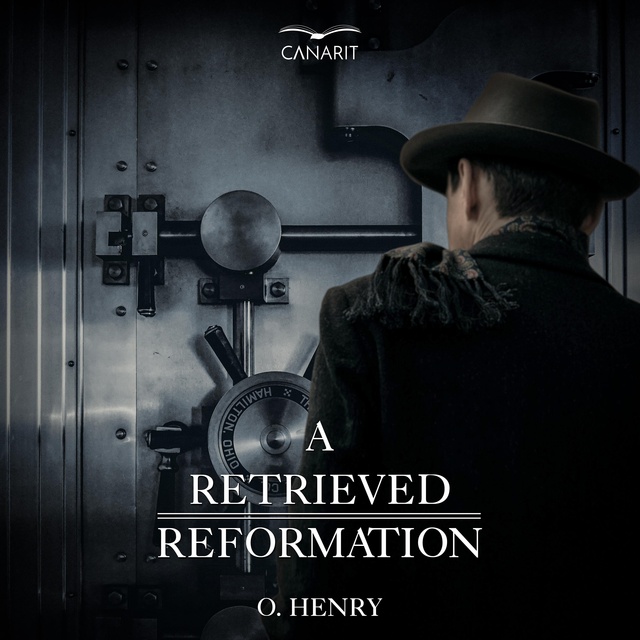It was an autumn evening in 1870. The rich banker was pleased with himself for hosting a dinner party for some of his friends and acquaintances. Among the many things they discussed at the dinner table, capital punishment soon became a hot topic. While some argued that capital punishment was immoral which should be replaced with imprisonment for life, others found nothing wrong with it. The host, on his part, supported it vigorously.
As the discussion continued, the host invited the opinion of a young lawyer in the group. "The death sentence and the life sentence are equally immoral," said the lawyer, "but if I had to choose between death penalty and imprisonment for life, I would certainly choose the latter. To live anyhow is better than not at all."
"It's not true," shouted the host striking the table with his fist. "I'll bet two millions you wouldn't stay in solitary confinement for five years."
"If you mean that in serious," said the lawyer, "I'll take the bet, but I would stay not five but fifteen years." "Fifteen? Done!" cried the host. "Gentlemen, I stake my two millions."
But on second thought, the host tried to dissuade the lawyer from taking the bet. However, the lure of money had already made the young man blind and totally oblivious to the hardships he would have to endure. As he was only 25, he dreamt of getting out of solitary confinement at the age of 40 and living the rest of his life in luxury with the banker's money.
"You stake your two millions and I stake my freedom," said the young man in cool manner.
Amidst anxious expressions of awe and wonderment at the dinner table, it was agreed by the lawyer to begin his solitary confinement at 12 noon on Nov 14, 1870 for a period of 15 years which would end at 12 noon on Nov. 14, 1885. The confinement was to be at a lodge owned by the banker under strict supervision. No outside contact would be allowed and he would have to spend the 15 years of his confinement with a piano and as many books as he would desire. It was agreed that any attempt to break the conditions even at the last minute on the part of the lawyer would relieve the banker of the responsibility of paying the bet.
So the solitary confinement began. In the beginning the detainee seemed to be depressed and lonely and spent most of his time playing the piano. Then he began to read books. Initially he chose contemporary novels and short stories. Then he focussed on classics. After reading all the available classics, he studied six languages one after another. After mastering languages, he concentrated on reading the Bible and books on theology and spirituality.
In the meantime, the banker had almost become bankrupt through gambling and speculation in stock market. To save himself from the disgrace of not paying the bet, the banker decided to murder the lawyer.
It was the eve of the release of the lawyer. In the still of the night the banker entered the room of the lawyer to execute his hideous plan. The lawyer was fast asleep sitting in a chair with his head resting on a bundle of books. As the banker approached the lawyer, he was taken aback at the sight of a long letter on the table. It was addressed to the banker. With trembling hands he took it and read it.
"Tomorrow at 12 o'clock I regain my freedom."
"For 15 years I have been intently studying earthly life...
Your books have given me wisdom... You may be proud, wise and fine, but death will wipe you off the face of the earth as though you were no more than mice... You have lost your reason and taken the wrong path...So I marvel at you, who exchange heaven for earth.”
"To prove to you in action how I despise all that you live by. I renounce the two millions of which I once dreamed as paradise and which now I despise. To deprive myself of the right to the money I shall go out from here five hours before the time fixed, and so break the contract...."
After reading the letter, which opened his eyes, the banker left the room ashamed of himself. The following day the banker, with tearful eyes watched the lawyer leave the room and disappear from sight a few hours before 12 noon.
The Bet, a short story by the great Russian writer Anton Chekhov, ends with the banker locking the lawyer's letter in a fireproof safe. The lawyer had been greedy; he had always been dreaming of making money. That was why he grabbed at the first big opportunity in his life to make money. However, many years of reading and reflection made him aware of how foolish he was in going after money and the pleasures of life.
Our natural tendency is to go after money and the worldly pleasures. However, by the time we realise that they don't bring us true happiness, it would have been too late for us. All of us need money to live a comfortable life. But when money becomes the ultimate goal, our life becomes topsy-turvy. And no matter how hard we try, we will never find happiness and peace.
The lawyer in Chekhov's short story is a constant reminder that money can never bring us ultimate happiness.



